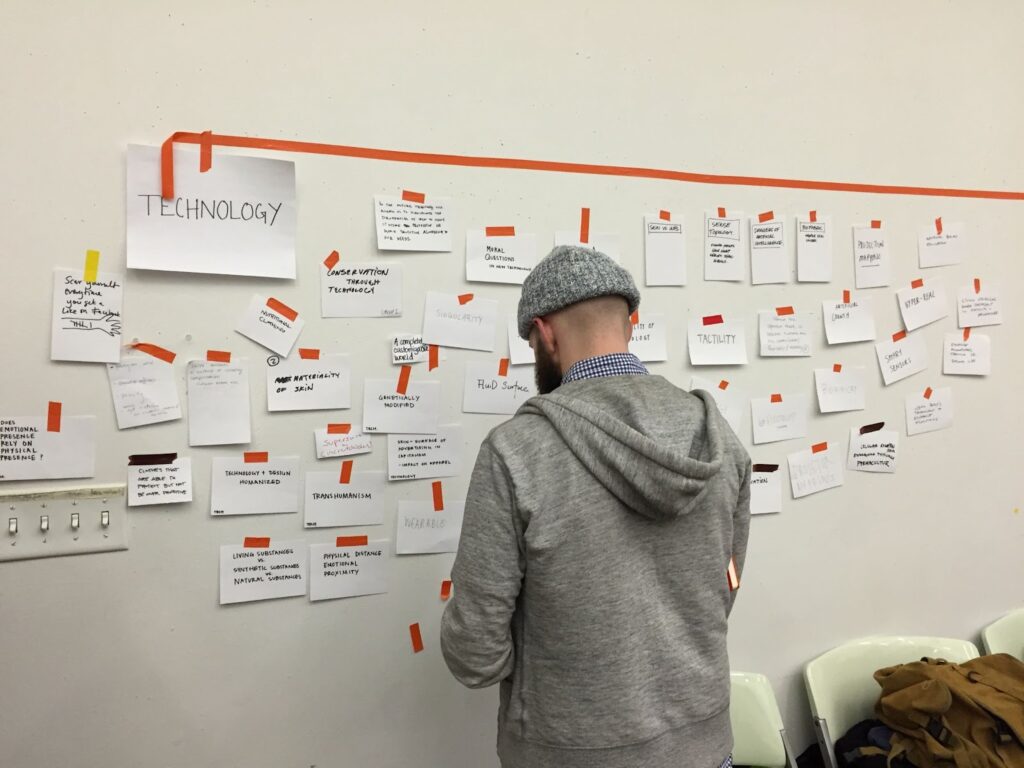The Hidden Language of Innovation in Consensus Cultures
How a design strategist helps global leaders unlock creative potential where innovation moves slowly at the speed of trust.
Tokyo abounds with innovation—robotics, high-speed rail and hyper-efficient systems. But inside Japan’s most respected comanies, the cadence of change is slower, quieter and more relational. For global executives accustomed to urgency, the contrast can be disorienting.
Decisions are deliberative, trust builds over time and innovation is encouraged, but rarely resembles the pace or format many leaders expect. “This tension isn’t unique to Japan,” says Daniel Hewett, founder of OCULAR and a former leader at RISD and MIT. “But here, it’s distilled. Progress doesn’t reject new ideas. It asks that they emerge from within, not be imposed from outside.”
Hewett helps senior teams reorient themselves in precisely these conditions. His work doesn’t accelerate decision-making—it recalibrates how insight is found, framed and brought forward, not by disrupting the system, but by revealing what it’s already capable of.
When Playbooks Fail and Context Becomes the Advantage

Global methods often falter in systems governed by informal cues and social trust. The instinct is to push harder, but that pressure often closes more doors than it opens. In Japan, power is rarely positional. Influence accrues relationally. Excellence and hesitation often coexist and because of this, transformation tends to happen through coherence, not rupture.
“You’re responsible for transformation,” says Hewett, “but the system you’re transforming may not want to be seen. That doesn’t mean it’s resisting you. It means you’re looking with the wrong lens.”
Reframing the Starting Point
Leaders often inherit initiatives without a real view of the system. Too often they’re handed strategic goals without a clear view of the ecosystem they’re working in. Data is reductive, choices are framed as binary, and when performance lags, initiatives stall. The instinct is to push harder, refine the metrics or double down on tactics. But the real issue often lies in how the problem was framed in the first place.
This is where OCULAR begins: not with tactics, but with upstream insight—contextual intelligence that defines what truly matters.
Founded by Hewett to bring design methodologies into leadership, OCULAR helps senior teams surface the latent dynamics shaping performance, trust and alignment. Its approach unfolds through immersive observation and interpretive reframing—often within existing projects—using the very teams already in motion.
These shifts in perception often reveal untapped sources of creativity and collaboration, especially in organizations that appear risk-averse on the surface. Once seen, they become levers for change, reactivating what’s already present rather than requiring wholesale disruption.
“Leaders don’t need more ideas,” says Hewett. “They need ways to see the system they’re already inside. Once they do, creative movement becomes possible without triggering organizational antibodies.”
The Unlikely Sources of Insight

OCULAR’s sessions often begin far from the boardroom: subway platforms, corner stores and parking lots. The habits and frictions of everyday systems often reveal more than reports or dashboards ever could.
In one example, a leadership team grappling with employee retention walked through a parking lot in Providence, Rhode Island. There, they observed an attendant deciding when to enforce a rule, when to grant leeway and how to read returning drivers.
That exercise reframed everything. Retention wasn’t about better incentives, it was about agency, discretion and trust—and it had been hiding in plain sight.
Context Is the Strategy
OCULAR’s work centers on these kinds of shifts, helping leaders access what’s already there but not yet seen. Clients have included Nike, Samsung, LEGO, Hyundai, USAID and the U.S. Special Forces. Every engagement begins with context, not theory. “The insights that matter aren’t buried in decks,” says Hewett. “They live in the way people relate to systems, to each other and to ambiguity.”
Once surfaced, these insights return to structured project studios—short, time-bound sprints where teams test new frames, realign collaboration and spark innovation without waiting for reorganization or top-down permission. OCULAR’s methodology works inside the system with the people and constraints already in place.
In Japan, Seeing is a Strategy

For global leaders in Japan, the challenge often isn’t failure, it’s misreading the terrain. Influence moves indirectly, alignment unfolds in layers and what can feel like inertia may actually be a quiet invitation to see more clearly.
“Japanese organizations aren’t anti-change,” says Hewett. “They change through continuity, through patterns and relationships that most outsiders overlook.”
The leaders who succeed don’t just adjust tactics—they recalibrate perception. They listen between the lines, sense where authority lives and wait attentively for the moment when something real can move. Progress in these environments doesn’t come from pushing harder; it comes from sensing the underlying systemic relevance of what’s already in motion and responding with relevance—and that begins by learning to see what your current context is already trying to show you.
Often, the first and most strategic step is not launching a new initiative, but recognizing the overlooked signals embedded in the work already underway. Systemic intelligence—especially when cultivated outside the boardroom—can surface new creative energy, unlock dormant team capacity and expose insights hidden in plain sight.
“It seems so simple,” said one client. “Daniel found ways to help the team look at the places we were most certain about and see what we couldn’t see. It changed everything.” His upcoming roundtable at Tokyo American Club aims to unlock exactly that kind of insight.
About OCULAR
OCULAR is a global advisory helping leaders, teams, and organizations unlock systemic insight through targeted field-based inquiry.

